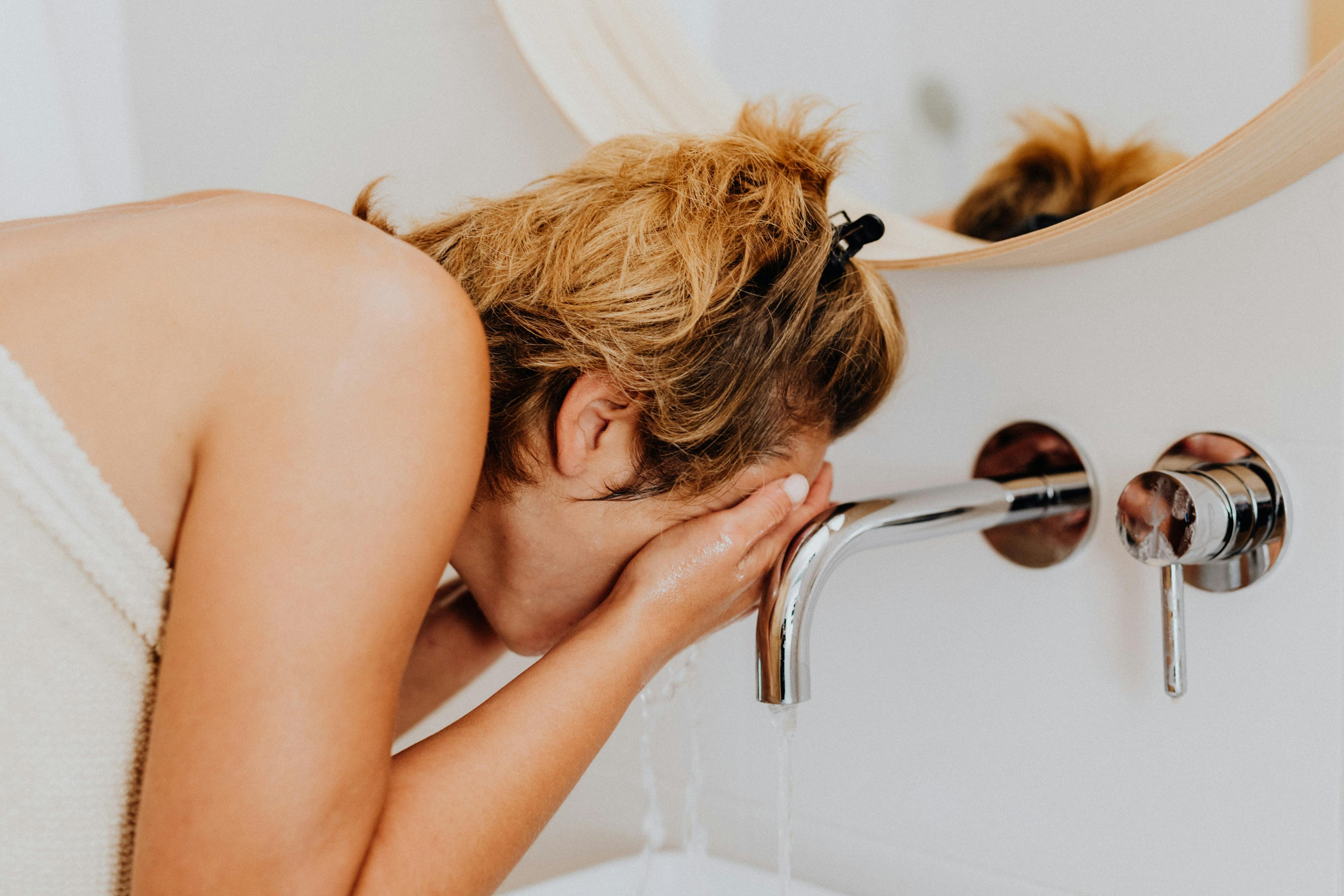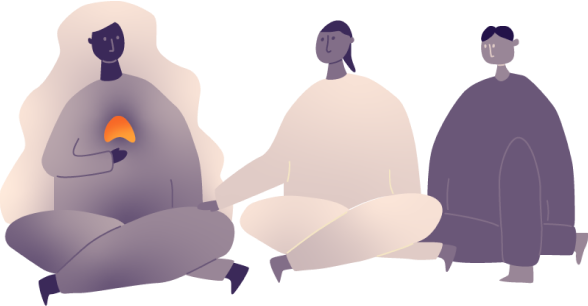Awhi is still in development, we'd love your feedback and suggestions. Let us know.
Help! How can I teach my teenager that good hygiene is important?
Most of us like to keep relatively clean and tidy because it builds our self-esteem and makes us feel good. We also usually care what other people think of us, and we know good hygiene is important for maintaining good health.
Often, we developed those good hygiene skills when we were teenagers, when along with an awareness of our changing bodies we became interested in sex and romance.
But not all teenagers develop this awareness, or the motivation to learn about and maintain good hygiene. Disabled and neurodivergent teenagers are more likely than most to be unaware of the social rules around good hygiene, and sometimes to struggle with acquiring the necessary skills.
Which is why it often comes down to those of us who care about them to help our kids with a few helpful pointers and reinforcement along the way.
Many parents of disabled children devise their own sex and relationship education programme that they can teach at home, which meets their child’s particular learning style and needs.
If so, a key component of that programme should be on personal care – dressing, showering, using deodorant, oral hygiene, how to shave, managing your period, dealing with acne, wet dreams. It should also include advice on avoiding certain behaviours in public, such as picking your nose, spots, or teeth or scratching an itchy crotch or butt!
Use teaching techniques that have worked with your child before – breaking down tasks into smaller steps, providing lots of opportunities for practice, praising them for every achievement, no matter how small and providing meaningful rewards.
**Also think about the most effective way of communicating with your child **– they may benefit from visual reminders and include pictures of any new additions to their cleaning routine – for example – include pictures of deodorants, shavers, sanitary pads – whatever is relevant.
Getting your child’s buy-in to their new routine can be made easier if you give them choice over the new products to use – for example, let them choose the deodorant they want, whether it’s because they love the picture on the outside of the bottle, or they adore the way it smells.
For some children, especially autistic children, sensory issues may interfere with establishing good hygiene habits. It is quite common for autistic children to dislike the feeling of water from a showerhead on their skin. The solution may be to drop the water-pressure in your showerhead, or for your child to have baths instead. Sensory issues may also interfere with period management – limiting or exaggerating your child’s inclination to change their sanitary product.
For more on this topic check out the Awhi article- How can I help my disabled child manage their periods?
It can also be an issue for disabled and/or neurodivergent children that they are unaware or indifferent to the social rules around hygiene, as well as the health implications. Most parents, however, will be acutely aware that disabled children are subject to more judgement and scrutiny than other children, and so it becomes even more important to reinforce good grooming and hygiene.
Not all children will be able to grasp or practice all the aspects of a good personal self-care routine but do as much as you can to instill those skills that they can learn. Others will be acutely aware of the barriers to managing their own self-care, such as a physical impediment, and are likely to be frustrated by this barrier to their independence.
For all teens, as they grow and develop, improving their ability to manage intimate tasks themselves, will improve their self-esteem and sense of autonomy.
For those children requiring an intimate care plan, check out the Awhi article My child is going through puberty – what is appropriate for their intimate care plan?
Finally, remember, there are some fundamental objectives to a good personal care programme:
- Teach and reinforce skills for good hygiene practices.
- Help your child understand the social rules that underpin good grooming and hygiene.
- Reinforce the concept of public and private behaviour – for example, it is okay to comb your hair in public, but it is not okay to change your tampon with the toilet door open.
For more on puberty, the following articles are available on Awhi Nga Matua.
- How can I support my teenage disabled/autistic child explore their sexuality?
- How can I help my disabled/autistic child navigate the emotional storms of puberty?
- My teenager wants to have a boyfriend/girlfriend, but I think they might get hurt – what can I do?
- Help! My teenager is using pornography and I don’t know what to do?
- Help! How can I teach my child what’s okay and what’s not, when it comes to masturbation?
- How can I help my disabled child with their body image?
You might also find the resources below useful, which includes books from the IHC Library as well as helpful website and helpline numbers. Or contact the IHC library direct to have a chat about what you need on 0800 442 442 or email: Librarian@ihc.org.nz.
Helplines:
Anxiety New Zealand: 0800 269 4389 (0800 ANXIETY)
1737: Free call or text 1737 to talk to a trained counsellor
Depression.org.nz: 0800 111 757 or text 4202
Kidsline (for people up to 18 years): 0800 543 754
Whats Up (for 5 to 18-year-olds): 0800 942 8787
thelowdown.co.nz , Web chat, email chat or free text 5626
Youthline: 0800 376 633, free text 234, email talk@youthline.co.nz
Lifeline: 0800 543 354
Samaritans: 0800 726 666
Suicide Crisis helpline: 0508 828 865 (0508 TAUTOKO)
Resources
When young people with intellectual disabilities and autism hit puberty :
When young people with intellectual...
"Written for parents and carers of young people with an...
"Written for parents and...
When young people with intellectual disabilities and autism hit puberty :
When young people with intellectual...
"Written for parents and carers of young people with an...
"Written for parents and...
Safety and Consent for Kids and Teens with Autism or Special Needs :
Safety and Consent for Kids and Teens with...
"The developmental challenges of children with special needs means...
"The developmental...
Safety and consent for kids and teens with autism or special needs :
Safety and consent for kids and teens with...
"The developmental challenges of children with special needs means...
"The developmental...
Sexuality :
Sexuality :
Parents describe the joy and challenges of raising children with an...
Parents describe the joy...
The facts of life ...and more :
The facts of life ...and more :
Gives social workers, teachers, and direct support professionals...
Gives social workers,...
Masturbation, autism and learning disabilities /
Masturbation, autism and learning...
"Intimate self-touch and masturbation can pose many difficulties...
"Intimate self-touch and...
Masturbation, Autism and Learning Disabilities :
Masturbation, Autism and Learning...
"Intimate self-touch and masturbation can pose many difficulties...
"Intimate self-touch and...
Sex and relationships education for young people and adults with intellectual disabilities and autism /
Sex and relationships education for young...
"[This book] provides practical guidance for professionals working...
"[This book] provides...
Hygiene and related behaviors for children and adolescents with autism spectrum and related disorders :
Hygiene and related behaviors for children...
"This book will be very helpful to many ASD parents who need a...
"This book will be very...
Relationship building and sexual awareness for kids with autism :
Relationship building and sexual awareness...
"STARS 2 is an adapted version of the original STARS guidebook that...
"STARS 2 is an adapted...
Sexuality and learning disabilities :
Sexuality and learning disabilities :
"This brand-new edition of our best-selling handbook, brings the...
"This brand-new edition of...
Sexuality and intellectual disabilities :
Sexuality and intellectual disabilities :
"This book provides a concise overview of sexuality and gender...
"This book provides a...
Let's talk about sex /
Let's talk about sex /
"Let's Talk About Sex is a sexual health education programme manual...
"Let's Talk About Sex is a...
Intellectual disability and the right to a sexual life :
Intellectual disability and the right to a...
"One of the perennial political/philosophical questions concerns...
"One of the perennial...
Tara grows up :
Tara grows up :
A short film about puberty designed to be watched by girls and...
A short film about puberty...
Billy grows up :
Billy grows up :
"Billy Grows Up" is a short film about puberty designed to be...
"Billy Grows Up" is a short...
Autism friendly periods
Autism friendly periods
Website of Robyn Steward author of "The autism friendly guide to...
Website of Robyn Steward...
Modibodi Period Panties
Modibodi Period Panties
NZ website of the Australian company that sells absorbent underwear...
NZ website of the...
AWWA Period Underwear
AWWA Period Underwear
Commercial website of the New Zealand company that sells underwear,...
Commercial website of the...
Body Image Movement
Body Image Movement
Website of the Body Image Movement. The site includes background...
Website of the Body Image...
KidsHealth :
KidsHealth :
New Zealand website that gives a brief guide to parents on the...
New Zealand website that...
Rainbow Youth
Rainbow Youth
New Zealand advocacy organisation. From the website - "We work...
New Zealand advocacy...
Healthify He Puna Waiora.
Healthify He Puna Waiora.
The Healthify website, formerly Health Navigator provides one place...
The Healthify website,...
Nest Consulting
Nest Consulting
New Zealand website. This link is to student question and answers...
New Zealand website. This...
Anxiety NZ :
Anxiety NZ :
"Anxiety New Zealand Trust supports people living with anxiety and...
"Anxiety New Zealand Trust...
Skylight Trust :
Skylight Trust :
Skylight Trust supports people of all ages throughout New Zealand...
Skylight Trust supports...
Depression NZ
Depression NZ
"This website helps New Zealanders recognise and understand...
"This website helps New...

Resources for kids
Things Ellie likes :
Things Ellie likes :
"A simple picture book to teach girls and young women with autism...
"A simple picture book to...
Things Ellie likes :
Things Ellie likes :
"A simple picture book to teach girls and young women with autism...
"A simple picture book to...
Things Tom likes :
Things Tom likes :
"A simple picture book to teach boys and young men with autism or...
"A simple picture book to...
Things Tom likes :
Things Tom likes :
"A simple picture book to teach boys and young men with autism or...
"A simple picture book to...
Growing up great! :
Growing up great! :
"Growing Up Great is a body-positive guide to getting through...
"Growing Up Great is a...
The growing up guide for girls :
The growing up guide for girls :
"The Growing Up Guide for Girls is a one-stop guide for young girls...
"The Growing Up Guide for...
Secret boys' business /
Secret boys' business /
Secret boys' business assists boys to understand the changes that...
Secret boys' business...
More secret girls' business
More secret girls' business
This is a companion volume to "Secret Girls Business". In addition...
This is a companion volume...
Special girls' business
Special girls' business
Takes a girl and her carer step by step through the process of...
Takes a girl and her carer...
Special boys' business
Special boys' business
This book has been written for boys with special needs. It supports...
This book has been written...
Puberty and special girls
Puberty and special girls
"Provides practical information about growing up and will help...
"Provides practical...
The autism-friendly guide to periods /
The autism-friendly guide to periods /
Written by autistic author Robyn Steward, this is a detailed guide...
Written by autistic author...
The autism-friendly guide to periods /
The autism-friendly guide to periods /
Written by autistic author Robyn Steward, this is a detailed guide...
Written by autistic author...
Boyfriends & girlfriends :
Boyfriends & girlfriends :
"Boyfriends & Girlfriends is for parents and professionals caring...
"Boyfriends & Girlfriends...
Leroy learns about the big P :
Leroy learns about the big P :
"This unique young person's book has been developed by a very...
"This unique young person's...
The boys' guide to growing up :
The boys' guide to growing up :
"As a sexuality educator, I applaud Terri for tackling this crucial...
"As a sexuality educator, I...
All about growing up
All about growing up
"This workbook has been designed for young people living with mild...
"This workbook has been...
The girls' guide to growing up :
The girls' guide to growing up :
"Puberty is a challenging time for all young adults. Now girls with...
"Puberty is a challenging...
.jpg&w=128&q=75)
Meryl Richards
I’m Meryl Richards. What a pleasure it’s been to join the Awhi team. I get to spend my days researching information that supports me as a parent, and sometimes challenges me to rethink what I thought I knew. My hope is that it will be useful to you too. I live in Kapiti with my partner and two teenage boys, and spend as much time as possible in the surrounding bush and at the beach.
Was this resource helpful to you?


The Awhi Ngā Mātua team would like to thank Takai, the IHC Foundation and the Dines Family Charitable Trust for their generous contributions to our work. A huge thank you also to the IHC Programmes team, in particular the IHC Library which has worked so hard to make their remarkable collection available to us.




.jpg&w=3840&q=75)




